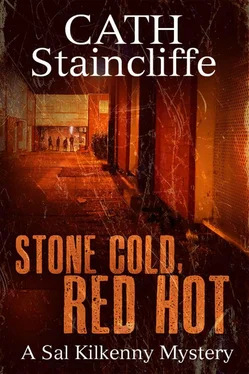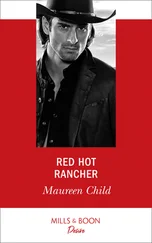“What’s your problem?” Johnny demanded.
“Hang on a minute, “I protested to Doyle, “you can’t…”
He wheeled round, confronting Johnny. “You are getting in my way and if you don’t move it, now, I’m charging you with obstruction, got that?” He stood, hands on hip, a grin of irritation on his face.
“This is crazy,” I began.
“You too, girlie,” he snapped. Then turning back to Johnny, “Move it, paki, now.”
Johnny stared back, face set, eyes blazing.
“Right,” the policeman lunged, span him round and rammed his right arm up his back hard.
“Let him go,” I shouted.
“Get in the car,” yelled Doyle, pushing Johnny towards the white saloon. “I’m arresting you on charges of obstruction and assaulting a police officer. You do not have to say anything but should you fail to mention,” he rattled off the long caution without pausing for breath as I ran after them. At the car Johnny stiffened. Doyle threw open the door. “Get in the car, get in the car,” he roared, “get in the fucking car.”
“Get off my arm,” Johnny shouted back.
“Get in the fucking car, now.”
He bundled Johnny in. There were wolf whistles and cheers from the smaller kids, I couldn’t see them but they were watching the whole shebang.
“What are you messing about with him for?” I demanded of Doyle. “He’s done nothing. There’s that lot down there to worry about. There’s a mother and three kids in that house, it’s them you should be thinking about.”
What was he planning to do with Johnny? Take him back to the police station, stopping on the way to ‘teach him a lesson’, hitting him where the bruises wouldn’t show? Or claiming that any marks were down to Johnny’s own violence when Doyle tried to arrest him? Anything could happen. What if Doyle let the Brennans get at Johnny? I felt sick to my stomach. I’d watch him like a hawk. And I could always get the camera out if Doyle tried anything stupid. He wouldn’t like his ‘community policing approach’ recorded on film, I was sure of that.
Doyle stalked off and began dragging things out of the way.
I bent down and spoke through the window so Johnny could hear me. “I’m sorry. Look, we’ll sort it out, we’ll sort something out. Are you OK?”
He glared at me. I suppose it was a daft question.
As soon as I could, I would register an official complaint against PC Doyle but before then I had to get through and do my job. The quickest way to do that was to help clear the road. I went over to the other side of the road from Doyle and began shifting stuff to the roadside; a greasy bike frame, a heavy car door, its metal squealing as I scraped it along the tarmac. We’d soon cleared the way.
PC Doyle returned to his car and drove through. I picked up my bag and followed them down the Close. As soon as we had passed I heard the noise of the junk as the kids returned to rebuild their barricade.
There was an ugly atmosphere on the street. The police car had stopped directly outside the Ibrahims and a crowd were milling round it. I picked out the familiar faces of the trouble-makers I knew from among the many that I’d not seen before. Where had they all come from? They were singing an obscene song and clapping in time. They kept it up as PC Doyle got out of his car. Mr Poole stood in his front garden. I went over to greet him.
“You called the police?” I asked quietly.
“Yes, straight after I rang you. They were pouring stuff on the door, chanting like mad things.”
“Come along now,” Doyle shouted, “let’s break it up.”
“Who’s that in yer car?” someone yelled.
“You’ll have to fumigate it after he gets out, stink like fuck won’t it?”
“What’s he done then, eh?”
“Vindaloo, vindaloo, vindaloo, vindaloo,” they chanted.
Doyle pulled a megaphone from the boot of his car and tried again. “Come on now, lads. You’ve had your fun.”
“Fun,” I muttered to Mr Poole.
“Why should we go home? Why can’t they go home? This is our country.” It was Mr Whittaker speaking, his thin face etched with lines and rigid with hatred. “We never asked them to come here. Fuckin’ wogs. They get an house and they put their kids in our schools and they take our jobs.” The crowd mumbled agreement. “Send them back. Dirty niggers. We don’t want them round here.” A ragged, angry cheer erupted. I could see Johnny, tense and still in the car. I felt a wobble of guilt. I should have refused to let him drive me.
The crowd began to move about, like some restless beast, surging down to the bottom of the Close and back again. Circling up and down the road in a sinister parade. There must have been about fifty people there, mostly men and boys. Two or three of them wove mountain bikes on and off the pavements. There were a huddle of people down at the alleyway between the Whittaker and Brennan houses.
“I ought to get the camera going,” I said to Mr Poole. As if on cue a section of the mob surged forward towards the Ibrahims’ and a volley of stones, bricks and bottles smashed against the house. The upstairs window cracked across.
Doyle spoke into his radio, presumably he’d got the sense to call for back-up. His eyes ranged across the crowd. No jokes with the lads now. He finished the call and lowered his radio. There was a new expression on his face, he swallowed, adjusted his hat. PC Doyle was frightened.
The door of the house adjacent to the Ibrahims’ opened and a young couple came out. She hugged a child, who was sucking a dummy, to one hip and he had a dog on a lead.
“Bloody sick of this,” she shouted to the policeman, her face haggard in the streetlight. “Why don’t you sort them fuckers out?”
“Come on, leave it,” her husband grabbed her by the elbow.
“Gerroff,” she screeched.
The child began to wail.
“You’re no bloody use you lot, you let them roam around like animals…”
Some of the crowd had clocked that she was talking about them and began to yell abuse back at her.
“Leave it, will ya,” the man yelled again and pulled her away. They hurried off up the Close. I looked down the road. Here and there I could see people peering from upstairs windows or stood on doorsteps. Watching, keeping a distance.
I felt uneasy about going into Mr Poole’s to set up the camera and losing sight of Johnny in the police car. Surely they wouldn’t try and hurt him while he was in the car. But if the violence increased, and the mob got a taste of its power, one copper wasn’t going to prevent them doing whatever they wanted. I hesitated.
People continued to promenade up and down. They were using the houses at the bottom as a base, going down and coming back with cans and bottles. Free drinks for the occasion? I heard a siren again, in the distance but growing louder. The noise excited the crowd who began to clap and sing. There was a palpable sense of violence in the atmosphere. It was raising the hairs on my arms, tightening my spine, souring my mouth, heightening my senses. The siren stopped. There was no sign of the police. My heart sank. Had they gone? Was it another call they were going to?
Doyle looked uneasy, standing woodenly beside his car, radio in hand still. Eyes shifting about. He licked at his lips repeatedly. Then he opened the door and got into his car. Yells greeted his retreat and someone threw a drinks can which bounced off the windscreen. Were they going to storm the car? What about Johnny?
At last the strobe of blue light reached us heralding the arrival of the back-up. But it wasn’t a van full of riot police or dogs, just another patrol car. Carl Benson and his partner pulled up behind Doyle’s car and got out. The crowd applauded and someone set them off humming a rendition of the theme tune to ‘The Bill’.
Читать дальше












